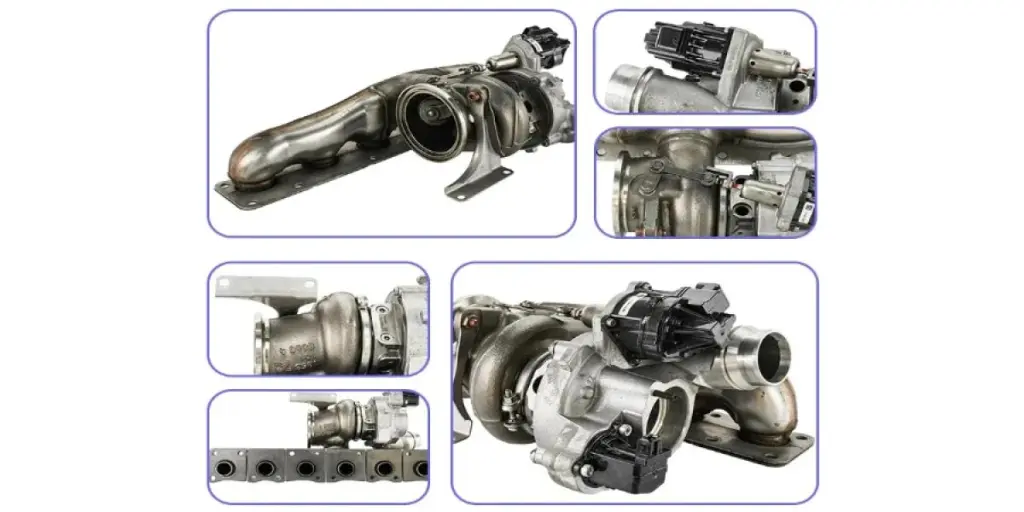Among BMW enthusiasts, the BMW N55 engine is popular, and it’s known for its smooth driving experience and powerful performance. Nevertheless, like any engine, the N55 has several faults. As such, there are common failures that BMW N55 engine users must be aware of.
Some of these common issues include the failure of the timing chain, clogging of the engine’s fuel injectors, and problems related to the turbochargers. If the timing chain fails to synchronize the engine’s crankshaft and camshaft, it results in severe damage.
The failure of the fuel injectors leads to the engine’s poor performance and reduces fuel efficiency. Engine oil starvation and overheating bring about turbocharger issues.
These issues are daunting, but buyers must note that they can be avoided with proper care and maintenance. For instance, engine inspections, regular oil changes, and repairs can improve the condition of the BMW N55 engine. This article will highlight the overview, causes of common faults, and actual failures of the BMW N55 engine.
Table of Contents
Overview of the BMW N55 engine
4 causes of common faults
7 most common BMW N55 engine faults
Summary
Overview of the BMW N55 engine

The BMW N55 is a turbocharged 3.0L inline-six engine launched in 2009. It was developed as a replacement for the successful BMW N54. The N55 involved various improvements designed to make it more reliable and dependable. Since its introduction, the engine has powered many vehicles in the German manufacturer’s portfolio.
The engine displaces 2,979 cc and has stroke measurements and a diameter of 89.6 mm and 84 mm, respectively. Its compression ratio is 10:2:1. The air-to-air intercooler and open deck block design have been used on this engine. It also has an aluminum block and iron cylinder sleeves. A single twin-scroll turbo is used to power the engine.
Below are the different N55 engine versions:
- N55B30M0
- N55B30
- N55B3000
- N55HP
- N55B30T0
4 causes of common faults
1. Manufacturing defects
Defects related to the timing chain in some N55 engines are sometimes due to the plastic material used in their engineering. This material cannot withstand the stresses of engine operation and is not durable, leading to premature failure and wear.
Fuel injectors with faulty seals allow fuel to leak into the engine, resulting in general performance issues and misfires. If these defects go undetected, it can lead to severe engine damage and costly repairs or replacement.
The BMW Group has acknowledged the issues; as such, it recalls any damaged engines and extends warranties on them. Buyers are required to diagnose and repair their faulty N55 engines with certified BMW mechanics to prevent further damage.
2. Poor maintenance
The BMW N55 requires proper and regular maintenance, like any other engine. Neglecting maintenance schedules can lead to issues like reduced performance, engine wear, and total engine failure.
Among the most critical maintenance tasks for the N55 engine is oil changes. Irregular oil changes can cause it to be contaminated with debris and dirt. As such, it loses its lubricating properties, resulting in wear and engine failure in the long run. Regular engine inspections help identify and address issues like leaking valve cover gaskets or worn-out timing chains. Generally, regular care and maintenance eliminate engine failures and extend its service life.
3. Extreme driving conditions
Even though the N55 engine is engineered to handle high performance, extreme driving conditions can exert additional stress, leading to unexpected faults. High-speed driving for prolonged periods increases engine temperatures.
This stresses components like turbocharges, which leads to failure over time. Using vehicles in extreme weather conditions, like cold or hot temperatures, can bring issues to the N55 engine.
Engine parts are bound to expand and contract excessively, and engine oil’s thickening may increase engine wear. Aggressive driving can push the engine to its limits, and components like the timing chain may fail. Buyers must drive responsibly and regularly maintain the engine when operating in extreme conditions.
4. Age and mileage
The N55 engine has been constructed to offer reliability and high performance. However, it wears out in the long run as a mechanical device. As the engine ages, features like the water pump, timing chains, and fuel injectors tend to wear out and eventually fail.
Rubber components like hoses, seals, and gaskets become brittle and crack in operation, resulting in engine leaks. Maintenance helps with issues that result from age and mileage accumulation. Buyers should regularly check the engine’s performance and address any arising issues.
7 most common BMW N55 engine faults
1. High-pressure fuel pump (HPFP) failure

This is a common N55 engine failure that occurs at around 60,000 to 80,000 miles. Fuel contamination, manufacturing defects, and wear cause HPFP failure. The symptoms include engine hesitation, rough idle, reduced power, and sometimes stalling or no-start condition.
This HPFP supplies high-pressure fuel to the engine’s injectors. The failure of this function causes engine misfires, fuel inefficiency, and eventual engine failure.
2. Wastegate failure
The wastegate regulates the turbocharger’s boost pressure. Its failure results in engine hesitation and minimal performance. Carbon buildup, manufacturing defects, and general wear and tear cause the failure.
Signs of this failure include engine power loss, decreased boost pressure, and loud hissing. Wastegate failure leads to poor performance, potential turbocharger damage, and increased exhaust emissions.
3. VANOS solenoid failure

The VANOS system adjusts the timing of the N55 engine’s intake and exhaust valves for optimal performance. The failure is mainly caused by contaminated oil and wear and tear. It can be detected by reduced engine power, rough idle, increased fuel consumption, and engine hesitation. VANOS solenoid failure can result in reduced performance, engine misfires, and damage to the camshaft.
4. Engine misfires
Several factors, including faulty spark plugs, fuel injectors, and ignition coils, cause engine misfires. This failure is identified by rough idle, increased exhaust emissions, and reduced power. Prior diagnosis and prompt addressing of underlying engine misfire help to prevent further damage.
5. Oil filter housing gasket failure
The oil filter housing gasket seals the oil filter to the engine block. Failure of the gasket leads to oil leaks, resulting in reduced engine performance and damage. Symptoms are seen through oil leaks around the oil filter housing, a burning oil smell, and oil drips to the ground. In such cases, replacing the oil filter housing gasket is necessary to prevent more engine faults.
6. Valve cover gasket failure

The valve cover gasket seals the valve cover to the engine block. This gasket’s failure results in oil leaks, resulting in decreased engine performance and potential damage. Buyers can detect this failure through oil leaks around the valve cover, oil drips, and a burning smell. They should replace the valve cover when any of those signs are detected.
7. Valve cover oil leak
On top of gasket failure, the valve cover can develop cracks and leaks, resulting in oil leaking into the engine. Ground oil drips, oil leaks around the valve cover, and a strong burning oil smell are symptoms of this failure. The valve cover should be replaced to prevent further oil leaks and looming engine damage.
Summary
The BMW N55 engine is reliable and robust. However, it is not immune to common engine failures that can affect its longevity and general performance. Buyers should promptly learn and address the failures from the guide above to prevent additional engine damage. They must pay attention to warning signs like reduced performance or unusual noises.
The issues should be addressed with certified BMW N55 mechanics. To acquire a high-performance BMW N55 engine and its parts, visit Chovm.com.





 বাংলা
বাংলা Nederlands
Nederlands English
English Français
Français Deutsch
Deutsch हिन्दी
हिन्दी Bahasa Indonesia
Bahasa Indonesia Italiano
Italiano 日本語
日本語 한국어
한국어 Bahasa Melayu
Bahasa Melayu മലയാളം
മലയാളം پښتو
پښتو فارسی
فارسی Polski
Polski Português
Português Русский
Русский Español
Español Kiswahili
Kiswahili ไทย
ไทย Türkçe
Türkçe اردو
اردو Tiếng Việt
Tiếng Việt isiXhosa
isiXhosa Zulu
Zulu